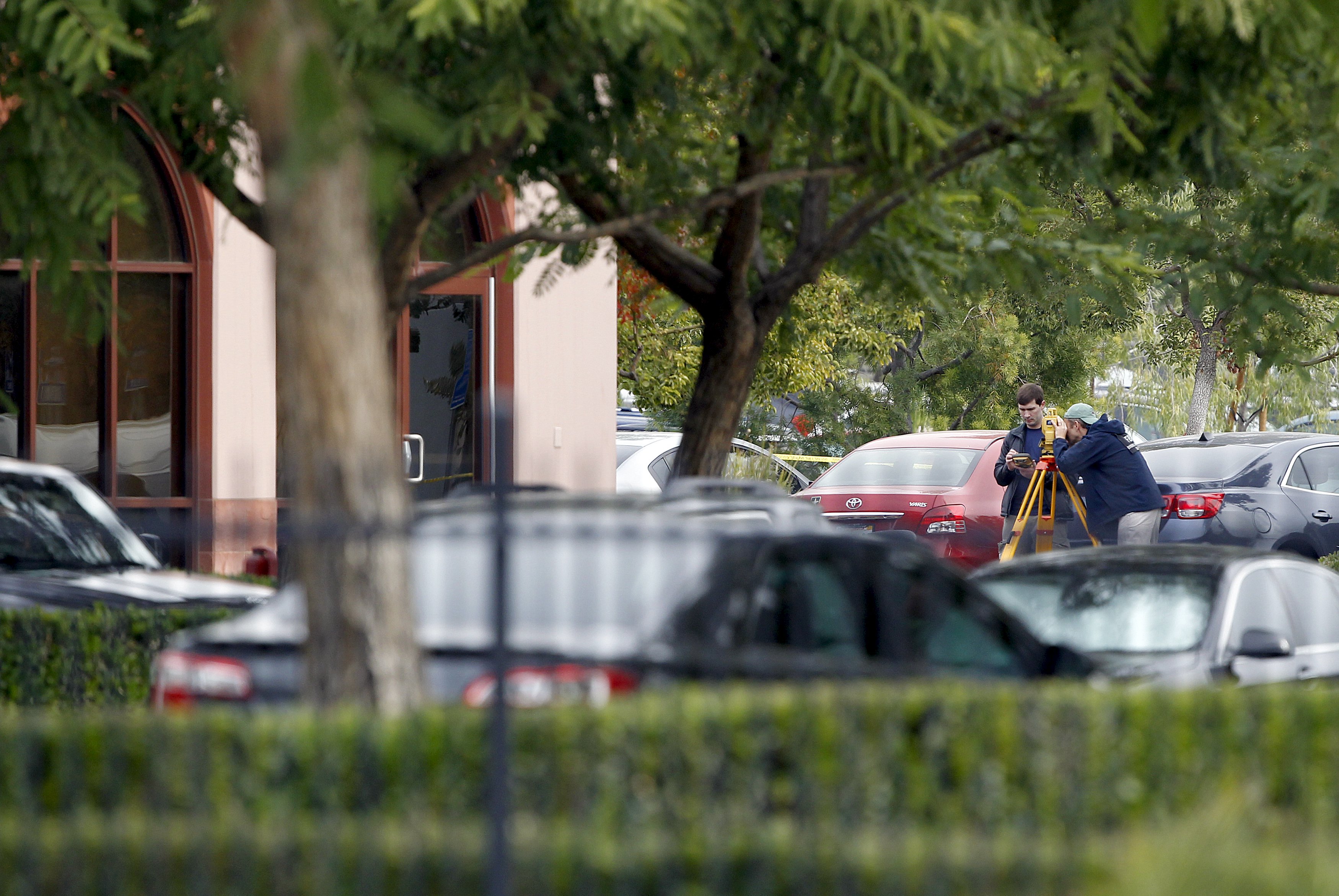Islamic State Says California Killers Were Their Followers

Islamic State said that the married couple who killed 14 people in a mass shooting in California, which the U.S. authorities are investigating as an act of terrorism, were its followers.
The terror group made the statement in an online radio broadcast three days after U.S.-born Syed Rizwan Farook, 28, and his wife Tashfeen Malik, 29, from Pakistan, attacked a party for civil servants in San Bernardino, about 60 miles east of Los Angeles.
The pair were killed two hours later, in a shootout with police.
Officials with the FBI, which is leading the probe into the shooting, said Malik and her husband appeared to have been inspired by foreign terrorist groups, but that there was no sign they had worked with any of them or that Islamic State even knew who they were.
“It is entirely possible that these two attackers were radicalized to commit this act of terror,” U.S. President Barack Obama said in a radio address on Saturday. “If so, it would underscore a threat we’ve been focused on for years, the danger of people succumbing to violent extremist ideologies.”
If the Dec. 2 mass shooting proves to have been the work of people inspired by Islamist terrorists, it would mark the deadliest such attack in the United States since Sept. 11, 2001.
Islamic State also claimed responsibility for a Nov. 13 series of terror attacks in Paris in which gunmen and suicide bombers killed 130 people.
“Two followers of Islamic State attacked several days ago a center in San Bernardino in California,” the group’s daily online radio broadcast al-Bayan said on Saturday.
An English-language version of the broadcast was later released calling the attackers “soldiers” of Islamic State, rather than “followers” as in the original Arabic version. It was unclear if the English version was claiming them as members, or why there was an inconsistency.
The broadcast came a day after it was confirmed that comments praising Islamic State were posted around the time of the mass shooting, to a social media account established by Malik under an alias.
However, it was uncertain whether the comments were posted by Malik herself or by someone with access to her page.
The couple had two assault-style rifles, two semi-automatic handguns, 6,100 rounds of ammunition and 12 pipe bombs in their home or with them when they were killed, officials said. The large arsenal could indicate they were planning further attacks.
The attack sparked a new round of the firearms debate with Obama and The New York Times calling for new limits on gun ownership. Many pro-gun voices, including some Republican contenders for the White House, said the new laws would not have stopped the rampage.
“It’s another tragic reminder that here in America it’s way too easy for dangerous people to get their hands on a gun,” said Obama.
The New York Times, in its first front-page editorial since 1920, said it was “a moral outrage and a national disgrace” that the sort of firearms used in the attack were readily available.
“These are weapons of war, barely modified and deliberately marketed as tools of macho vigilantism and even insurrection,” the newspaper said.
The newspaper’s publisher, Arthur Sulzberger Jr, said that the editorial was intended “to deliver a strong and visible statement of frustration and anguish about our country’s inability to come to terms with the scourge of guns.”
Citing an unnamed federal law enforcement official, the Los Angeles Times reported that Farook had “some kind” of contact with people from the Nusra Front and the radical Shabab group in Somalia, though the nature of that contact was unclear.
FBI Director James Comey said on Friday that the investigation suggested the attackers had possibly been inspired by “foreign terrorist organizations” but added there was no evidence they were part of a larger group.
To Read The Full Story
Are you already a subscriber?
Click "Sign In" to log in!

Become a Web Subscriber
Click “Subscribe” below to begin the process of becoming a new subscriber.

Become a Print + Web Subscriber
Click “Subscribe” below to begin the process of becoming a new subscriber.

Renew Print + Web Subscription
Click “Renew Subscription” below to begin the process of renewing your subscription.












